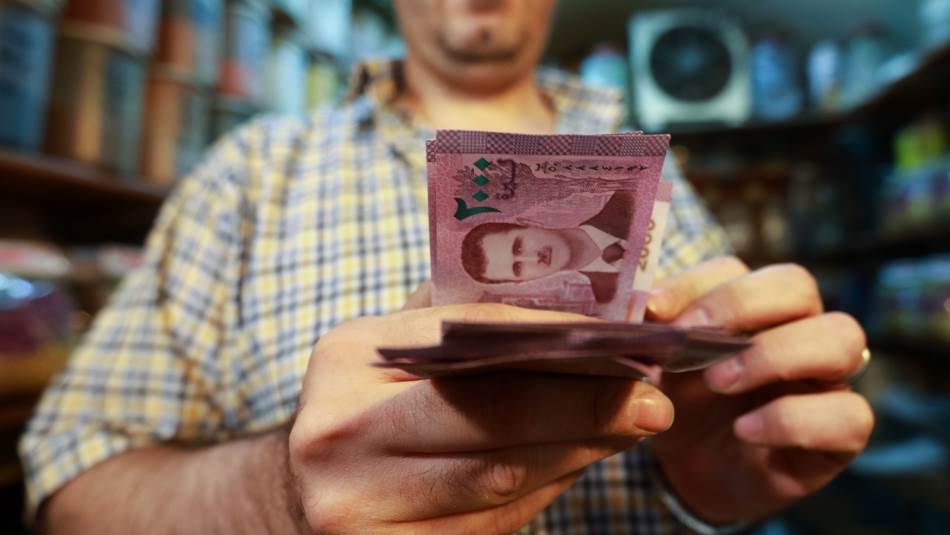On Wednesday, the Syrian pound experienced a significant decline, reaching a new record low against the US USD, with an exchange rate approaching 11,000. The Central Bank of Syria responded to this decline by devaluing the pound for the third consecutive day.
According to a bulletin issued by the website “Lira Today,” the selling price of the SYP against the USD on the black market in the capital, Damascus, fell to 10,500, while the purchase price reached 10,400 pounds. In Aleppo, the selling price of one USD was reported at 10,900 SYPs, with the purchase price reaching 10,750 SYPs.
Central Bank Regulates Funds Allowed to Enter and Exit Syria
In less than three weeks, the Syrian pound has depreciated by approximately 3,000 against the USD, resulting in a decline rate of around 1 to 3 percent per day.
The Syrian Central Bank has been closely monitoring the SYP’s decline on the black market and has officially reduced its price for the third consecutive day to 9,200 pounds, as stated in the “Remittances and Exchange” bulletin. This measure by the Central Bank is the fifth of its kind in approximately a week, as it has devalued the SYP in the bulletin four times, lowering its value from 8,200 to 9,000 per USD.
According to researcher and economic analyst Radwan al-Debs, the stability of the SYP in the recent period was based on expectations of financial support from Gulf countries. However, these expectations were not met due to the failure to normalize relations with the Syrian regime and the lack of support in the form of reconstruction or partnership in government sectors, leading to the current deterioration.
Debs predicts further deterioration in the near future, attributing it to the regime’s decision to involve government sectors, such as Damascus International Airport, in participatory investment. This move implies an implicit acknowledgment of the absence of foreign exchange reserves. Additionally, the departure of other sectors that contribute to the influx of USDs into Syria, which were previously under long-term investment contracts with regime allies like Russia and Iran, further exacerbates the situation. These sectors include ports and oil fields.
This article was translated and edited by The Syrian Observer. The Syrian Observer has not verified the content of this story. Responsibility for the information and views set out in this article lies entirely with the author.


